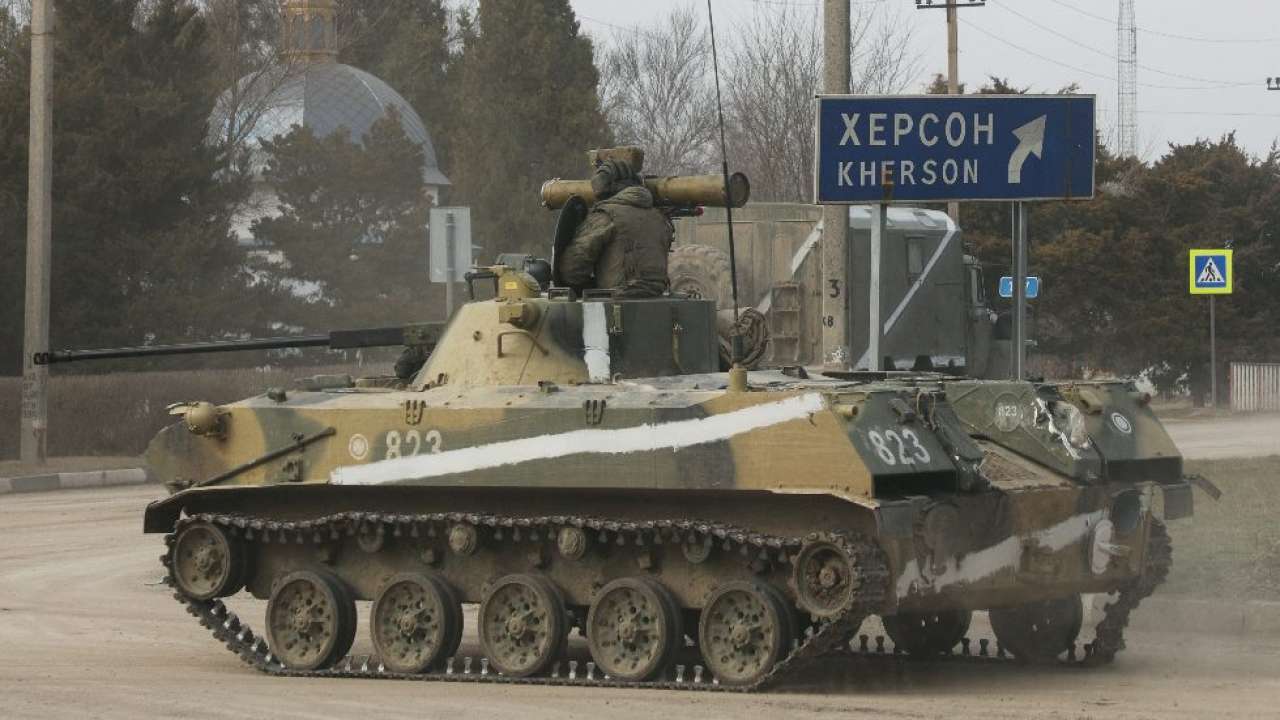A Brief Colonial History Of Ceylon(SriLanka)
Sri Lanka: One Island Two Nations
A Brief Colonial History Of Ceylon(SriLanka)
Sri Lanka: One Island Two Nations
(Full Story)
Search This Blog
Back to 500BC.
==========================
Thiranjala Weerasinghe sj.- One Island Two Nations
?????????????????????????????????????????????????Thursday, March 3, 2022
The Russia-Ukraine Crisis

Photo courtesy of DNA
SHANIA DEDIGAMA-02/27/2022
What are the root causes of President Vladimir Putin’s decision to invade the Ukraine? It’s a blatant attempt by President Putin to re-adjust the power balance in Europe and to rewrite the post-Cold War order. The invasion was more than just overruling the sovereignty of Ukraine and securing territory and resources there.
Despite the fact that President Putin has always seen Ukraine and Russia as one and the same and never really recognized their independent sovereignty, some of the more immediate causes for the Kremlin’s aggression leads back to the Cold War. During the Cold War (which spanned between the years 1945-1991), the Western powers created the NATO alliance for defense and security while the Eastern bloc created the Warsaw treaty/pact in response to safeguard their own interests in the East.
Since the end of the Cold War and since the early 2000s, NATO has been expanding their membership into the East and encouraging Balkan countries and countries in the Eastern power bloc to join NATO. This is an egregious violation of the boundaries set after the collapse of the Soviet Union and a provocation by the West. Since 2000 alone NATO (in which Russia is not a member) has expanded into Latvia, Poland, Hungary, the Czech republic, Bulgaria and Romania to name a few examples. Had the opposite occurred, had President Putin expanded Russia influence into the West, total nuclear war would have swiftly followed. Since November and December of 2021, the Kremlin has been issuing warnings to remove NATO deployments and their military presence in the Baltic countries but was met with inaction. The Kremlin also opposed NATO expansion into Scandinavia. Despite their fair share of warnings NATO’s presence in the East remained on the grounds that it was for defensive purposes.
But what were the consequences of this unsound decision to expand NATO into the Eastern bloc? They failed to calculate the rifts that still exist between the East and West and misjudged the deep-rooted sensitivities that could trigger a number of outcomes. Especially given the extremely precarious nature between President Putin and the US, the decision to remain indifferent to the Kremlin’s requests and demands was detrimental. Now with his position threatened and with so many Eastern polities allied with NATO, Putin places his bid to reassert his power in the East and to create a bulwark against Western expansionism.
While acknowledging that there are always provocations to actions, and it is always prudent to analyze the ‘why’ question when learning about developments in current affairs, I am not suggesting that President Putin’s method of retaliation is justifiable. Instead I am suggesting that for more than 20 years of NATO rocking the extremely precarious, volatile Russo-Western relationship, conflict in the form of Russian re-assertion of dominance in the East was a ticking time bomb.
Another noteworthy observation to make is the inaction of the UN in the face of this international crisis. In 1945 the UN was founded on the hope that there would be a strongly backed international organization that would be a mediator to prevent any obstructions to peace. However we can see traces of disintegrating strength in the UN and a reluctance to intervene as seen before during the Rwandan genocide of 1994.
President Putin is undoubtedly the aggressor in this whole calamity of his own making. He is re-asserting Russian hegemony in Eastern Europe at the cost of innocent civilian life and property, damaging economies and markets globally. President Putin, in a position of autocratic power since 2000, has grown to perceive himself as a leader of importance, bearing the responsibility of restoring Russian greatness, has set his ultimate aim to assert dominance so as to coerce NATO to strike a security deal and to see US troops and missiles leave Eastern European soil.
The Cuban Missile Crisis of 1962 where Soviet premier Nikita Khrushchev attempted to respond to the placement of American missile bases in Turkey and Italy by building a Soviet base in Cuba comes to mind. One outdoing the other; one threatening the other. However, because of brilliantly far-sighted and calculated statesmanship by President John F. Kennedy and Premier Khrushchev, the crisis didn’t escalate to military confrontation. Today, the absence of that diplomacy has left us with conflict and war.
So what happens now? The West will perpetually place economic sanctions on Russia to encourage de-militarization but we don’t know how effective this is. As history has demonstrated, sanctions are not always the most effective. Subsequent to American trade embargoes on Japan in the late 1930s, Japan retaliated with their attack on Pearl Harbor.
Most importantly, Russia is the world’s largest natural gas exporter and it is in possession of many of Europe’s gas pipelines. What does this mean for the global economy? With rises in fuel prices, gas price increments, inflation, stagnant economic growth and disruption to financial markets, countries such as Sri Lanka who cannot afford to strongly join an alliance will experience the domino effects of Europe’s crisis the most.

